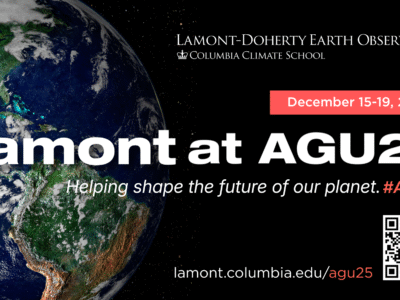
David Walker, a professor of geochemistry at Lamont-Doherty Earth Observatory, will be honored tonight by colleagues at the American Geophysical Union for decades of groundbreaking work to understand the early formation of the moon and Earth. Walker will receive the AGU’s Harry H. Hess Medal, awarded for “outstanding achievements in research of the constitution and evolution of Earth and other planets.”
Walker began his career as a student at Harvard University in the late 1960s and early 1970s, as samples of the moon were being returned by the Apollo space missions. Walker was into experimental petrology, a field in which lab scientists try to re-create and understand the conditions under which natural rocks form. With the aid of the moon samples, Walker helped helped piece together much of the story of lunar history accepted today. “Much of what we now take for granted about the formation of the lunar crust and mantle came out of the Harvard experimental petrology lab in the 1970s, clearly with Dave Walker’s intellectual stamp on it,” said Carl B. Agee, a planetary geologist at the University of New Mexico who wrote the citation for the award.
After coming to Lamont a few years later, Walker began working on questions about Earth, including its early separation into chemically distinct layers, and the genesis of magmas that flow out at mid-ocean ridges to form the seafloors. He is currently working on experimental studies to elucidate the formation of earth’s core, and its interaction with the overlying mantle.
Walker also played a key role in developing devices that could duplicate the extreme high-pressure conditions found deep within planets, simplifying designs so that any decent machine shop could turn out the equipment cheaply. “Walker-type” anvils, used to compress experimental solutions to these extreme pressures, are now standard in labs across the world.
Along the way, Walker also has found time to become a popular teacher who has helped students explore topics as diverse as alternative energy sources; radioactive waste, and mineralogy. Agee wrote that Walker “is a true leader in experimental petrology, in both designing and improving experimental equipment, and pioneering new ideas of the evolution of the Earth, Moon and planets.”



